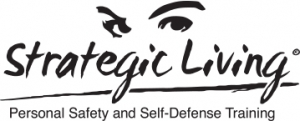Author Ellen Snortland has often been in the media advocating for making personal safety and self defense a required class in high schools. Her article One Too Many in the Pasadena Weekly as well as her spotlight on National Public Radio points to the murder of Chelsea King as yet another reason too many to teach kids how to defend themselves.
Yet there’s a great reluctance to widely add self defense skills to young people’s toolboxes. More emphasis and resources are given over to services once they’ve become victims, or to enacting laws intended to prosecute and punish offenders (but which sometimes result in unwanted consequences, but that’s another post). Both these approaches are critical, but that third leg of prevention is keeping real safety from becoming a reality.
We are the only creatures on this planet that actively strives to dis-empower large segments of our population by not only not teaching basic personal safety, but often by lying about its efficacy. Once upon a time (about 3 decades ago) conventional wisdom held that women should not fight back lest they get hurt worse. Studies now show that’s not true at all, and in fact over 75% of women who even begin to resist assault chase off their assailant.
Unfortunately, most women don’t know that. And that is truly a crime.
